Do’s and Don’ts of Visiting France
Do’s and Don’ts of Visiting France

As some of you may know, I’m French (Bonjour!)! And I’ve heard so many things about French people, how we are perceived and worries people have before traveling to France. Whether you’re going for leisure or adventure, knowing some local French customs and etiquettes can make your trip smoother and more enjoyable. Here are the do’s and don’ts when visiting France.
Do: Learn Basic French Phrases

Start by learning a few basic French phrases. Saying “Bonjour” (Hello), “Merci” (Thank you), and “S’il vous plaît” (Please) helps bridge the cultural gap and shows respect to the locals. It’s a simple way to enhance your interaction and connect with French people.
Do: Greet People Properly

Whenever you enter a shop or ask for assistance, start with a polite “Bonjour”. This is not just polite but also an integral part of French culture. It sets a positive tone for your interaction and is looked upon favorably by the locals.
Do: Dress Appropriately

In France, the way you dress can greatly influence the perception of those around you, especially in cities like Paris. Opt for smart, well-put-together outfits as opposed to very casual clothes. French people take great pride in their appearance and appreciate it when visitors do the same.
Do: Use Public Transport
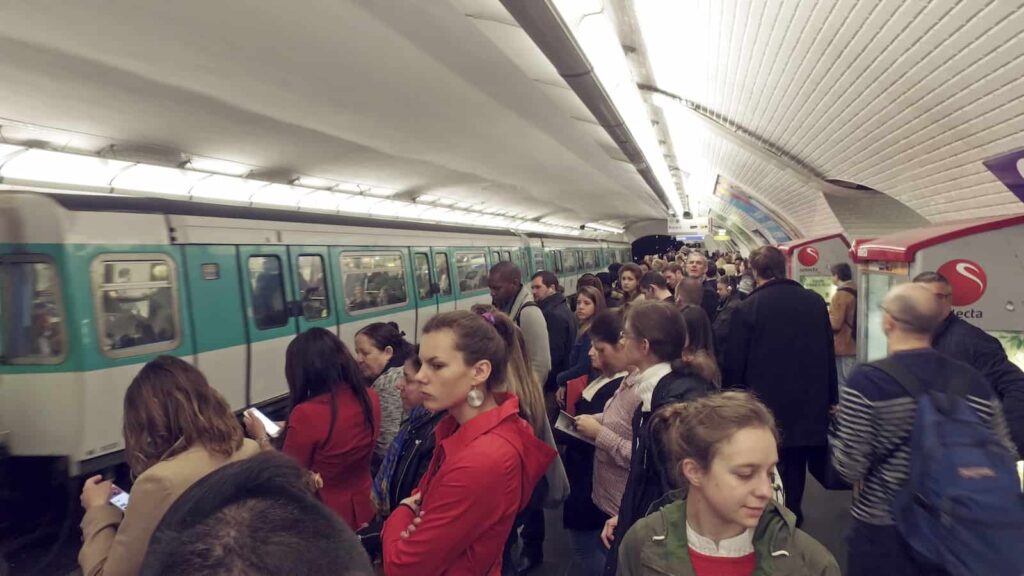
France boasts an extensive and efficient public transport system. Take advantage of the metro, buses, and trains to get around, especially in larger cities. It’s not only cost-effective but also a great way to explore different areas like a local.
Do: Make Restaurant Reservations
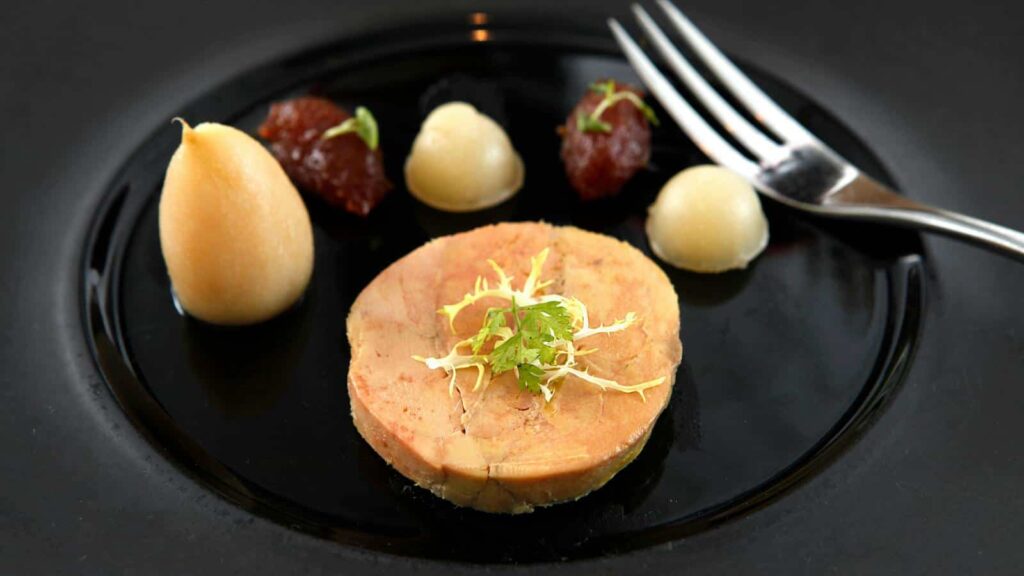
Planning to dine out? Make sure to book your table in advance, especially in popular spots. Many restaurants in France require reservations, particularly for dinner, to ensure you have a spot.
Do: Visit Museums and Cultural Sites
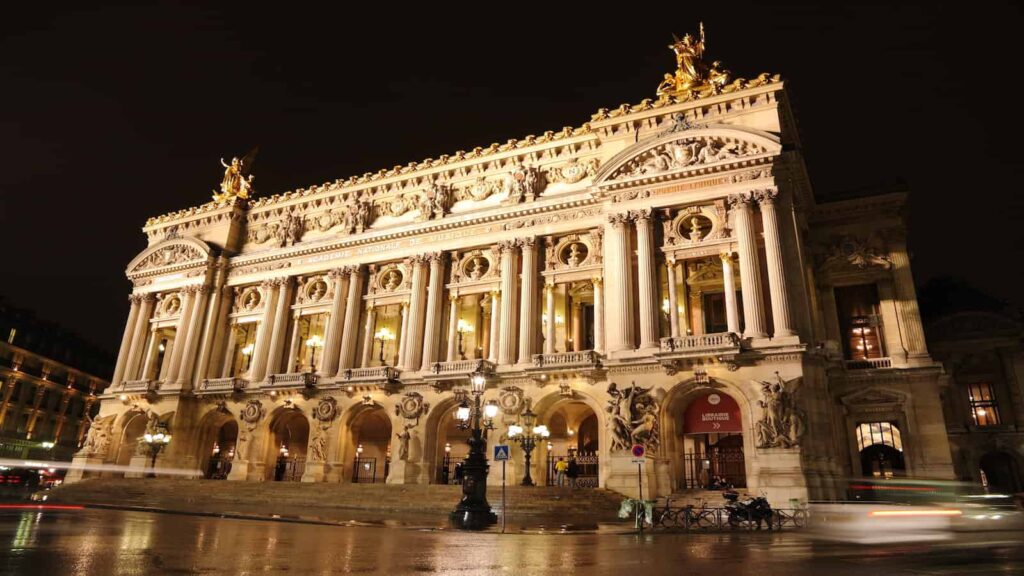
France is rich in culture and history. Make time to visit museums, historical landmarks, and galleries. Often, these places have special discount days or free admission times, so check ahead and plan accordingly.
Do: Respect Meal Times
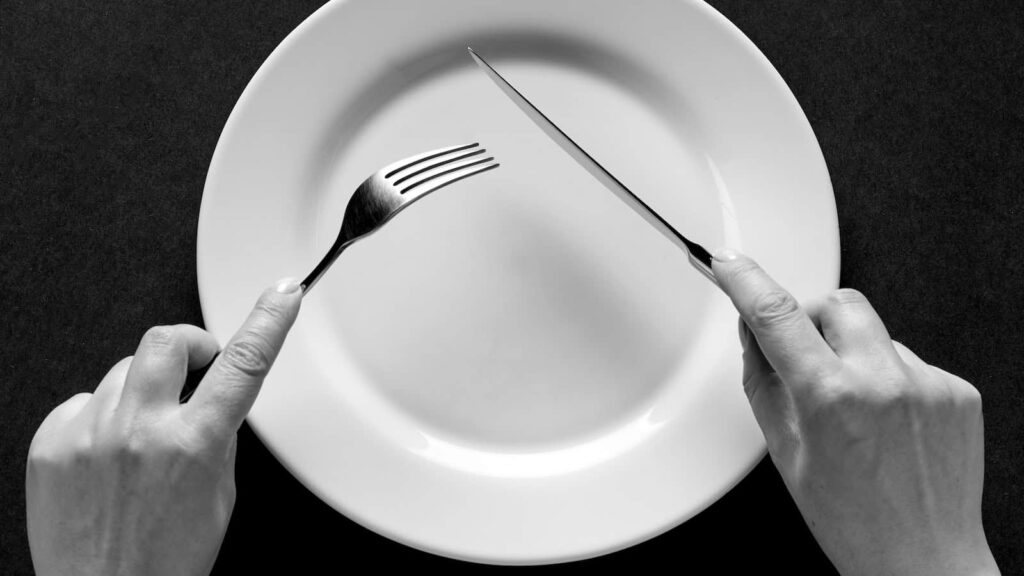
Adhere to the typical French dining hours. Lunch is usually from 12:00 PM to 2:00 PM and dinner from 7:30 PM onwards. Respecting these times shows your understanding and respect for the local culture.
Do: Enjoy Local Markets
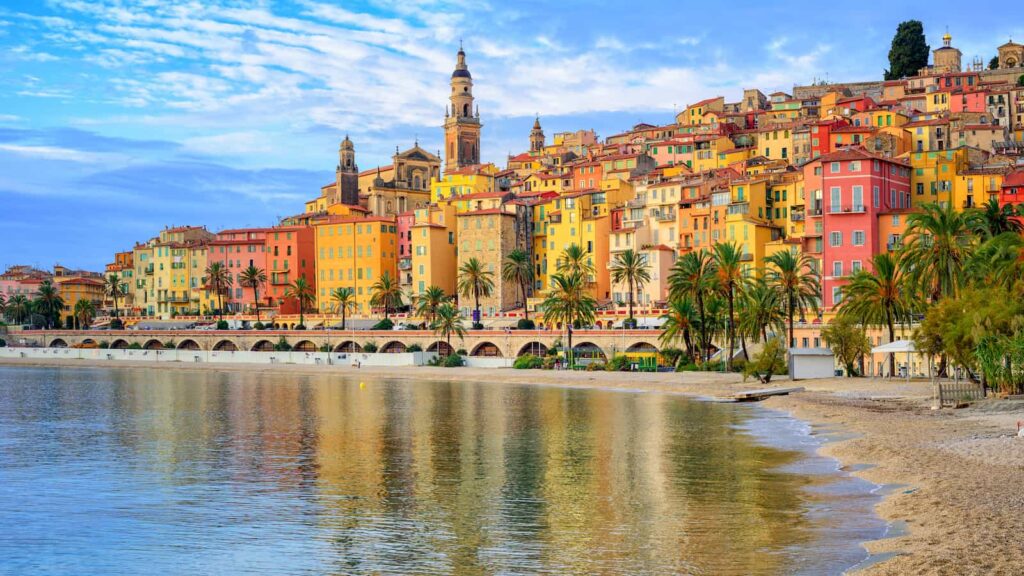
Visit local markets to experience France’s regional cuisine and produce. These markets are a feast for the senses and offer a glimpse into the everyday life and culinary traditions of the area.
Do: Be Punctual

Timeliness is valued in French culture. Whether it’s a casual meeting or a professional appointment, make sure to be on time. This shows respect for the other person’s time and commitment.
Do: Try Local Specialties

France offers a diverse range of foods specific to each region. Don’t hesitate to try local dishes and specialties, as food is an integral part of French culture and varies greatly from region to region.
Do: Tip Appropriately
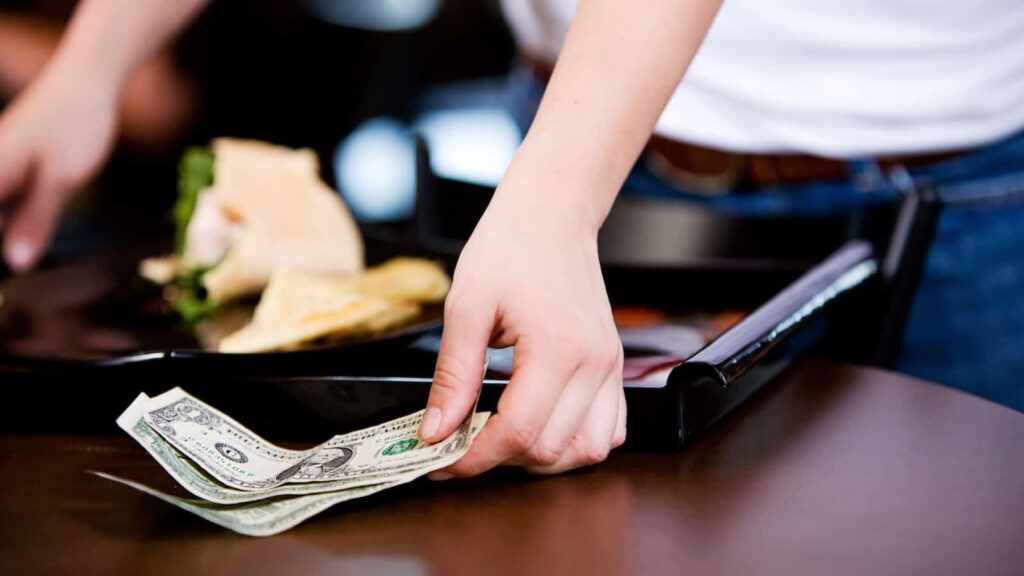
While not mandatory, tipping for good service can be customary in France, especially in Paris (ugh!!). Typically, a small tip is appreciated in cafes and restaurants, usually around 5-10% of the bill, depending on the service.
Do: Respect Quiet Hours

Be mindful of your noise levels, particularly in residential areas or while using public transport. Keeping volume down is a sign of respect for the privacy and peace of the locals.
Don’t: Assume Everyone Speaks English

Not everyone in France speaks English. Attempting to speak even a little French is not only practical but also shows your respect and willingness to engage with the culture.
Don’t: Rush Through Meals

Meals are an important part of the day in France, meant to be enjoyed slowly. Take your time to enjoy the food and the company, embodying the leisurely pace of French dining culture.
Don’t: Touch Produce at Markets

At local markets, it is customary to not handle the produce. If you want something, ask the vendor for help. This respects the vendor’s goods and the local shopping etiquette.
Don’t: Be Loud in Public

Keep your voice down when in public spaces. The French prefer keeping conversations at a moderate level, especially in places like public transportation.
Don’t: Expect Stores to Be Open 24/7

Many shops and services in France close on Sundays and may have mid-day breaks. This traditional practice is something to plan around during your visit.
Don’t: Ignore Local Customs
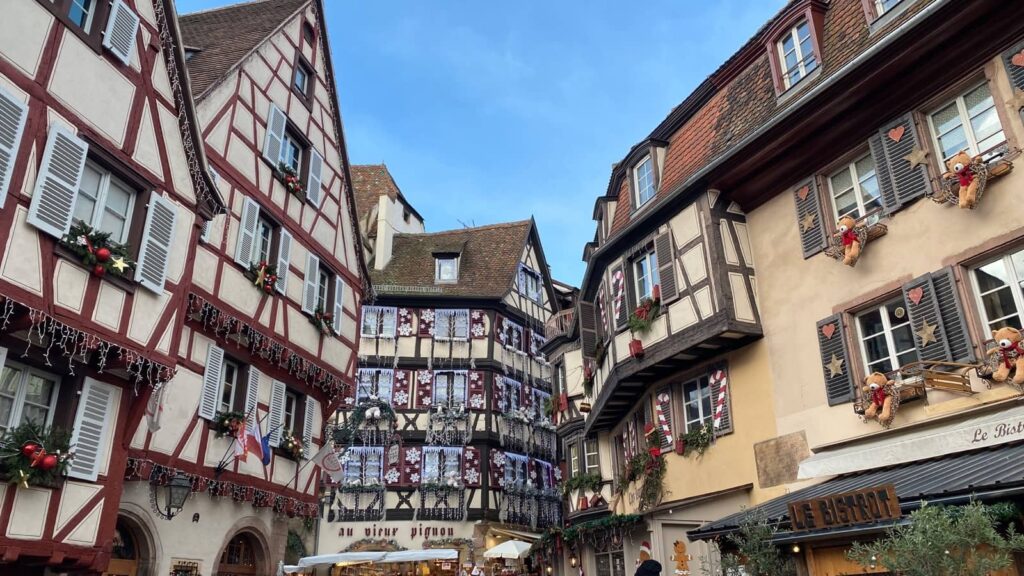
Simple courtesies like saying “bonjour” when entering a store and “au revoir” when leaving are important in French culture. Respecting these customs improves interactions and shows cultural sensitivity.
Don’t: Take Photos in Churches Without Permission

Always check before taking photos in churches or other religious sites. Some places might have restrictions or require permission.
Don’t: Skip Tipping for Bad Service

Even if the service isn’t great, leaving a small tip is still a common practice. It reflects well on you and respects the nuances of local tipping customs.
Don’t: Overpack

Travel light, especially if you plan on using public transportation. Having smaller, more manageable luggage makes navigating through cities and towns easier.
Don’t: Expect Free Tap Water in Restaurants

In France, tap water is not routinely served at restaurants unless requested. If you need water, simply ask for “une carafe d’eau.”
Don’t: Discuss Money

Talking about personal finances or asking about someone’s salary is considered impolite. Avoid such discussions to keep conversations comfortable and respectful.
Don’t: Ignore Queue Etiquette
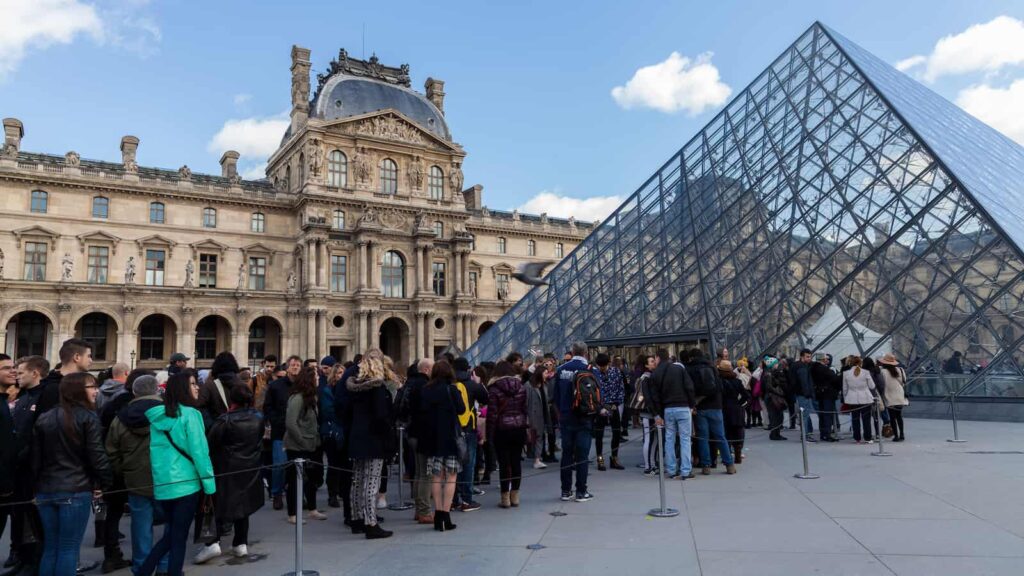
Queueing is taken seriously in France. Always wait your turn and be mindful of line etiquette to avoid any social faux pas.
10 French Landmarks You Didn’t Know Existed

Read More: 10 French Landmarks You Didn’t Know Existed
11 American Habits French People Should Adopt

Read More: 11 American Habits French People Should Adopt
12 French Words Americans Use The Wrong Way

Read More: 12 French Words Americans Use The Wrong Way
We are Mary and Eric, the founders of Be Right Back, a blog dedicated to romance around the globe and at home.
We are Mary and Eric, the founders of Be Right Back, a blog dedicated to romance around the globe and at home. With over 10 years of experience in dating and traveling to romantic places, we share our favorite date ideas and romantic destinations to help couples level up their relationships. Having lived in and traveled through the USA, we also share our favourite things to do in the States.
With 70,000 monthly readers and 16,000 followers on social media, Be Right Back is your go-to resource for romantic trip ideas and couple activities at home and abroad.
